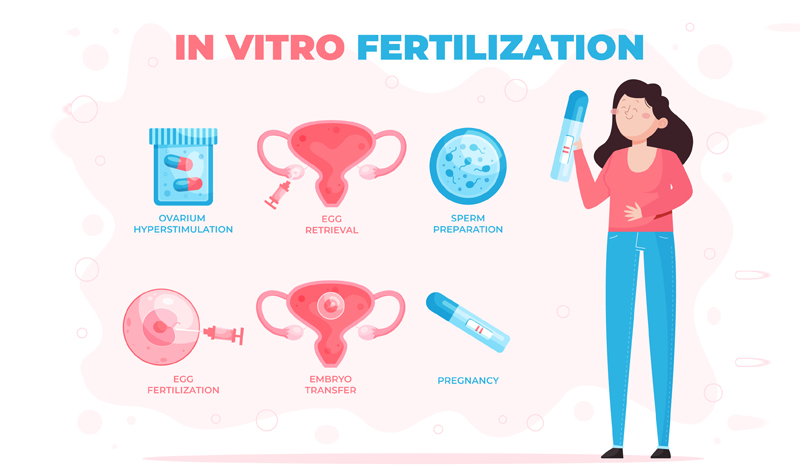You completed an In vitro fertilisation (IVF) cycle with high hopes. However, a negative result can devastate you. Don’t worry, It’s not the end. Consider it to be the beginning of the next chapter.
IVF is a complex process that involves multiple steps, each with the potential to impact success rates. Even with the presence of high-quality embryos, many couples face the disappointment of failed IVF cycles.
In this blog post, we will cover the various factors that can contribute to IVF failure and why IVF fails despite the good embryos being selected.
Embryo Quality:
Although having good embryos is essential, it’s important to note that even the best embryos have differing implantation potential. The evaluation of segregating varying degrees of embryo is a complex process (also known as embryo grading). Further, the true potential of an embryo may not always be accurately assessed.
- Number of Embryos: While having multiple embryos can increase the chances of success, it’s fundamental to balance this with the risks of multiple pregnancies. Some clinics recommend transferring a single embryo to reduce the risk of twins or higher-order multiples.
- Frozen or Fresh Cycles: The timing of embryo transfer can impact implantation rates. Some studies suggest that frozen embryo transfer (FET) might have higher success rates compared to fresh cycles. However, individual factors and clinic protocols play a significant role in determining the optimal approach.
- Embryos or Cycles: The decision to prioritize embryos or cycles depends on various factors, including age, the number of available embryos, and the couple’s preferences. Some couples opt for transferring multiple embryos in a single cycle, while others prefer to transfer fewer embryos in multiple cycles.
- Uterine Factors: The condition of the uterine lining, i.e. the endometrium, is crucial for embryo implantation. Factors such as thin lining, polyps, fibroids, or uterine abnormalities can interfere with implantation.
- Immune System Factors: In some cases, the immune system may attack the embryo, preventing successful implantation. This condition, known as immunological infertility, can be diagnosed and treated.
- Hormonal Imbalances: Hormonal imbalances can affect the uterine environment and disrupt the implantation process. Careful monitoring and hormone regulation are essential for IVF success.
- Male Factor Infertility: While embryo quality primarily depends on the female partner, male-factor infertility can also impact IVF outcomes. Sperm quality and quantity can influence fertilisation rates and embryo development.
- Lifestyle Factors: Factors such as smoking, excessive alcohol consumption, obesity, and stress can negatively impact fertility and IVF success.
Conclusion
IVF is a complex and emotionally demanding process. Understanding the various factors that can contribute to IVF failure, even with good embryos, is essential for managing expectations and making informed decisions.
While the reasons for IVF failure can be multi-layered, a thorough evaluation by a fertility specialist can help identify potential underlying issues and develop a personalised treatment plan.
It’s important to remember that IVF success rates vary, and not every cycle will result in a pregnancy. Seeking support from fertility counsellors or support groups can also be beneficial in coping with the emotional challenges associated with IVF.
References:
Science direct: https://www.sciencedirect.com/science/article/abs/pii/S1521693418301627
https://www.sciencedirect.com/science/article/abs/pii/S1472648313004756



